Six new Good Practice Guides – Updates
- 16/09/2021
- Posted by: Sandra Borma
- Category: Africa, Benin, Guinea, Kenya, Togo, Uganda
No Comments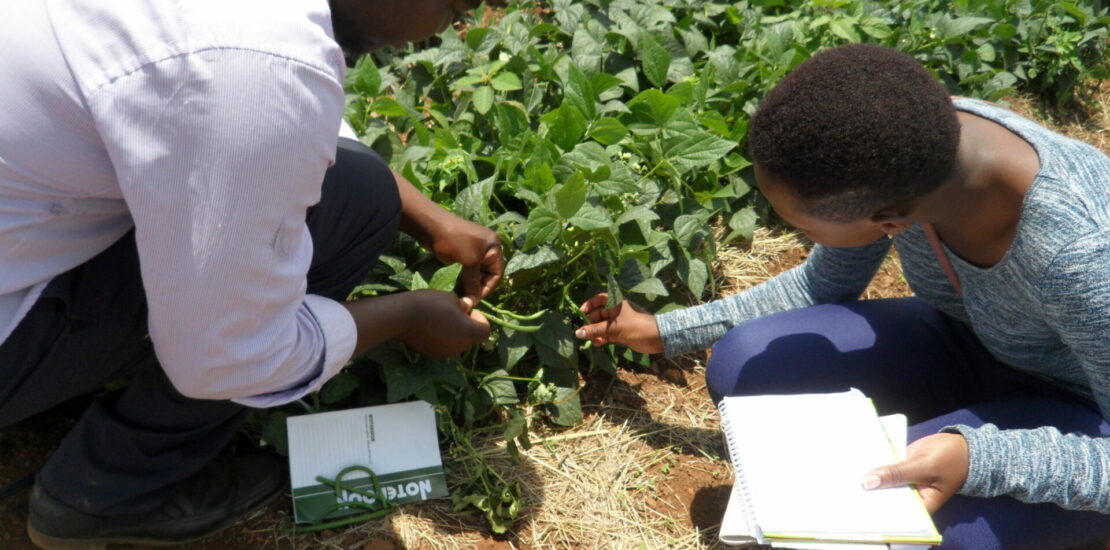 During 2021 COLEACP is providing a team of expert consultants to support national/regional initiatives to develop Good Practice Guides for horticultural value chains. These Guides are being developed, disseminated and kept up to date by stakeholders within each value chain. They are not COLEACP publications – they are written, owned and published by the professionals, within each country/region and crop sector, who will inform and use them. Stakeholders in the sector who take on this task receive practical support throughout… +
During 2021 COLEACP is providing a team of expert consultants to support national/regional initiatives to develop Good Practice Guides for horticultural value chains. These Guides are being developed, disseminated and kept up to date by stakeholders within each value chain. They are not COLEACP publications – they are written, owned and published by the professionals, within each country/region and crop sector, who will inform and use them. Stakeholders in the sector who take on this task receive practical support throughout… +Congratulations to ColdHubs and all the winners of “Best Small Business: Good Food for All”
- 16/09/2021
- Posted by: Sandra Borma
- Category: Africa, Nigeria
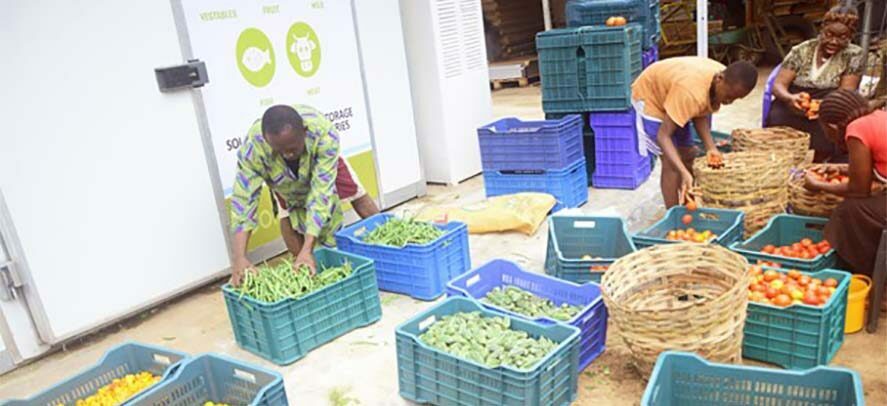 This year’s UN Food Systems Summit (UNFSS2021) launched a competition to recognise the importance of (SMEs) to the future of food and to acknowledge that small businesses are too rarely heard on the international stage. The Best Small Business: Good Food for All competition selected 50 winning SMEs – from cafes through farmer cooperatives to digital start-ups – from nearly 2,000 applications from 135 countries. The winners and share US$100,000 in cash prizes. Their stories and impactful work is presented… +
This year’s UN Food Systems Summit (UNFSS2021) launched a competition to recognise the importance of (SMEs) to the future of food and to acknowledge that small businesses are too rarely heard on the international stage. The Best Small Business: Good Food for All competition selected 50 winning SMEs – from cafes through farmer cooperatives to digital start-ups – from nearly 2,000 applications from 135 countries. The winners and share US$100,000 in cash prizes. Their stories and impactful work is presented… +Zimbabwe: Pineapple smallholders achieve organic certification
- 10/09/2021
- Posted by: Sandra Borma
- Category: Africa, News, Zimbabwe
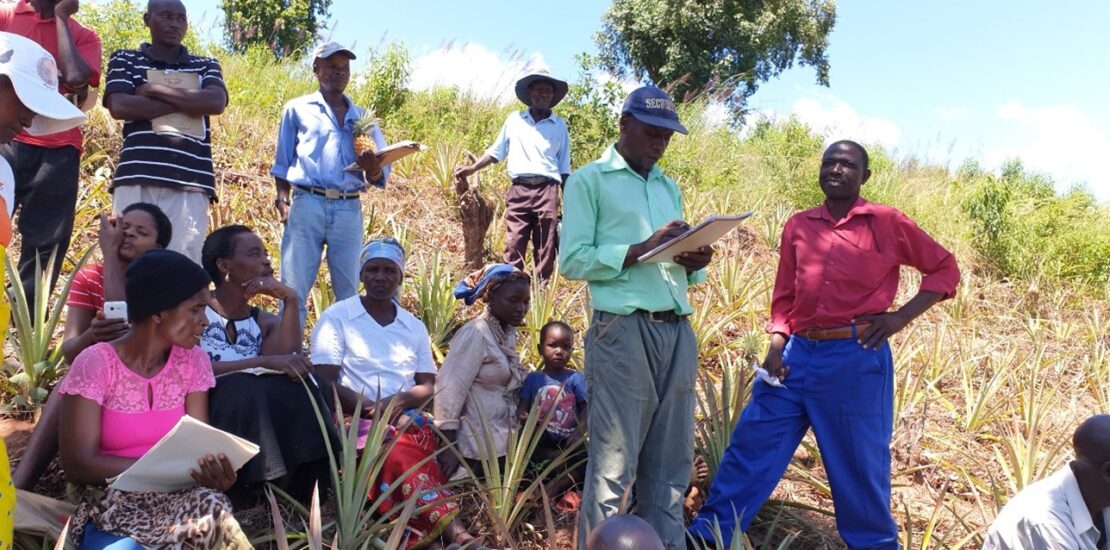 “The Trust is excited, ZimTrade is thrilled, GreenStone Foods is over the moon whilst COLEACP is looking at building on this success to help the Trust grow. What a journey!” William Zirebwa, COLEACP National Relay Zimbabwe In August 2021, 45 smallholder pineapple farmers in Rusitu Valley, Chipinge, members of the Rusitu Valley Fruit Growers and Marketing Trust (RVFGMT), received a major boost when they achieved organic certification of their pineapples by Ecocert (The Herald, 27 August). The attainment of… +
“The Trust is excited, ZimTrade is thrilled, GreenStone Foods is over the moon whilst COLEACP is looking at building on this success to help the Trust grow. What a journey!” William Zirebwa, COLEACP National Relay Zimbabwe In August 2021, 45 smallholder pineapple farmers in Rusitu Valley, Chipinge, members of the Rusitu Valley Fruit Growers and Marketing Trust (RVFGMT), received a major boost when they achieved organic certification of their pineapples by Ecocert (The Herald, 27 August). The attainment of… +Senegal: Setting up commercial services within professional organisations – pilot training
- 03/09/2021
- Posted by: Sandra Borma
- Category: News, Senegal
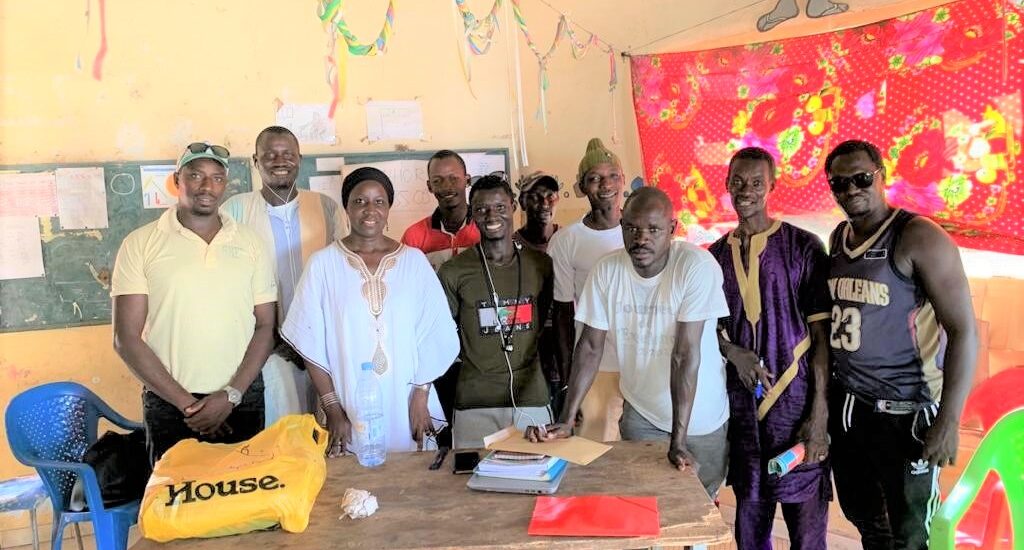 COLEACP has begun its first sessions of pilot training on implementing a commercial service within a professional organisation. This training, carried out in collaboration with the National Agency for Agricultural and Rural Consultancy – Niayes Area Directorate (ANCAR Thiès), is aimed at producers in the market gardening sector operating on the local informal market. During the training a COLEACP expert, Ms Jeanne Marie SARR, worked with a producer group of Yade in the Niayes region, alongside the ANCAR agent who… +
COLEACP has begun its first sessions of pilot training on implementing a commercial service within a professional organisation. This training, carried out in collaboration with the National Agency for Agricultural and Rural Consultancy – Niayes Area Directorate (ANCAR Thiès), is aimed at producers in the market gardening sector operating on the local informal market. During the training a COLEACP expert, Ms Jeanne Marie SARR, worked with a producer group of Yade in the Niayes region, alongside the ANCAR agent who… +EU MRL changes for 83 PPPs in 2021
- 26/08/2021
- Posted by: Gaetan Dermien
- Category: Africa, Angola, Antigua and Barbuda, Australia, Bahamas, Barbados, Belgium, Belize, Benin, Botswana, Burkina Faso, Burundi, Cameroon, Cape Verde, Caribbean, Central African Republic, Chad, Comoros, Cook Islands, Côte d'Ivoire, Country, Democratic Republic Of The Congo, Djibouti, Dominica, Dominican Republic, Equatorial Guinea, Eritrea, Eswatini, Ethiopia, Faroe Islands, Federated States of Micronesia, Fiji, France, Gabon, Gambia, Germany, Ghana, Greece, Grenada, Guinea, Guinea-Bissau, Guyana, Haiti, Hungary, Ireland, Italy, Jamaica, Kenya, Kiribati, Liberia, Luxembourg, Madagascar, Malawi, Mali, Marshall Islands, Mauritania, Mauritius, Mozambique, Namibia, Nauru, Netherlands, News, Niger, Nigeria, Niue, Pacific, Papua New Guinea, Poland, Portugal, Republic of the Congo, Rwanda, Saint Kitts and Nevis, Saint Lucia, Saint Vincent and the Grenadines, Samoa, Sao Tome and Principe, Senegal, Seychelles, Sierra Leone, Solomon Islands, Somalia, Spain, Suriname, Tanzania, Timor-Leste, Togo, Tonga, Trinidad and Tobago, Tuvalu, Uganda, Vanuatu, Zambia, Zimbabwe
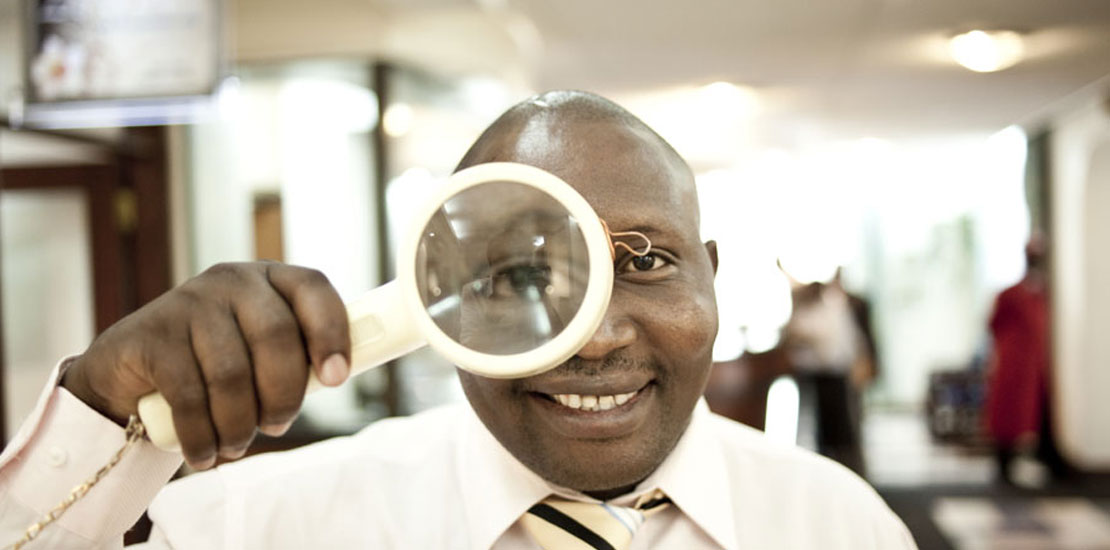 Key points Since the start of 2021, European Union (EU) maximum residue level (MRL) changes concerned 83 plant protection products (PPPs; 59 in 2020). These changes refer to modifications compared to the previous regulation, and can be either an increase or lowering of the MRLs for certain foods.COLEACP identified 27 key substances used in African, Caribbean and Pacific (ACP) horticulture that are affected by these changes. For 10 of the substances (ametoctradin, bupirimate, chlorothalonil, dimethoate, ethoprophos, myclobutanil, propiconazole, pyraclostrobin spinetoram,… +
Key points Since the start of 2021, European Union (EU) maximum residue level (MRL) changes concerned 83 plant protection products (PPPs; 59 in 2020). These changes refer to modifications compared to the previous regulation, and can be either an increase or lowering of the MRLs for certain foods.COLEACP identified 27 key substances used in African, Caribbean and Pacific (ACP) horticulture that are affected by these changes. For 10 of the substances (ametoctradin, bupirimate, chlorothalonil, dimethoate, ethoprophos, myclobutanil, propiconazole, pyraclostrobin spinetoram,… +Togo: young people honoured at closing of “Incubator for technical managers” project
- 29/07/2021
- Posted by: Sandra Borma
- Category: News, Togo
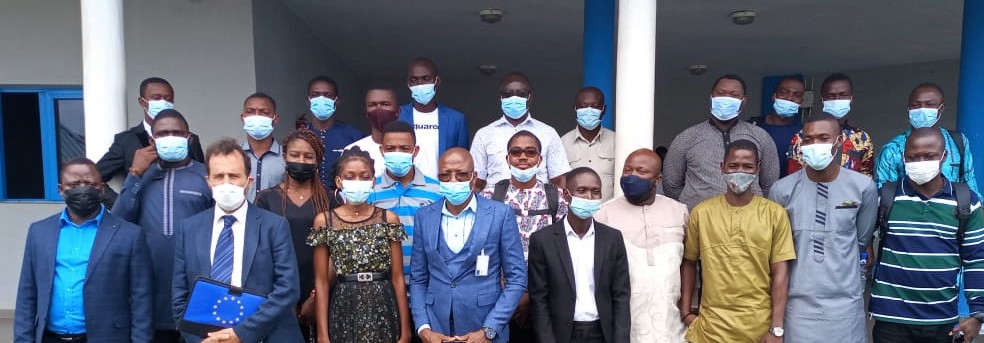 The closing event of the “incubator for technical managers” project, implemented in Togo from June 2020 to February 2021, took place on 10 June 2021. The project was set up by COLEACP in collaboration with Togolese companies in the framework of the Standards and Trade Development Facility (STDF) Togo Project. Other partners who were involved in the occasion included the European Union Delegation, the German development agency (Deutsche Gesellschaft für Internationale Zusammenarbeit, GIZ), the Plant Protection Directorate (DPV) of Togo… +
The closing event of the “incubator for technical managers” project, implemented in Togo from June 2020 to February 2021, took place on 10 June 2021. The project was set up by COLEACP in collaboration with Togolese companies in the framework of the Standards and Trade Development Facility (STDF) Togo Project. Other partners who were involved in the occasion included the European Union Delegation, the German development agency (Deutsche Gesellschaft für Internationale Zusammenarbeit, GIZ), the Plant Protection Directorate (DPV) of Togo… +Next Kenya programme meeting with Machakos county Government
- 22/07/2021
- Posted by: Sandra Borma
- Category: Kenya, News
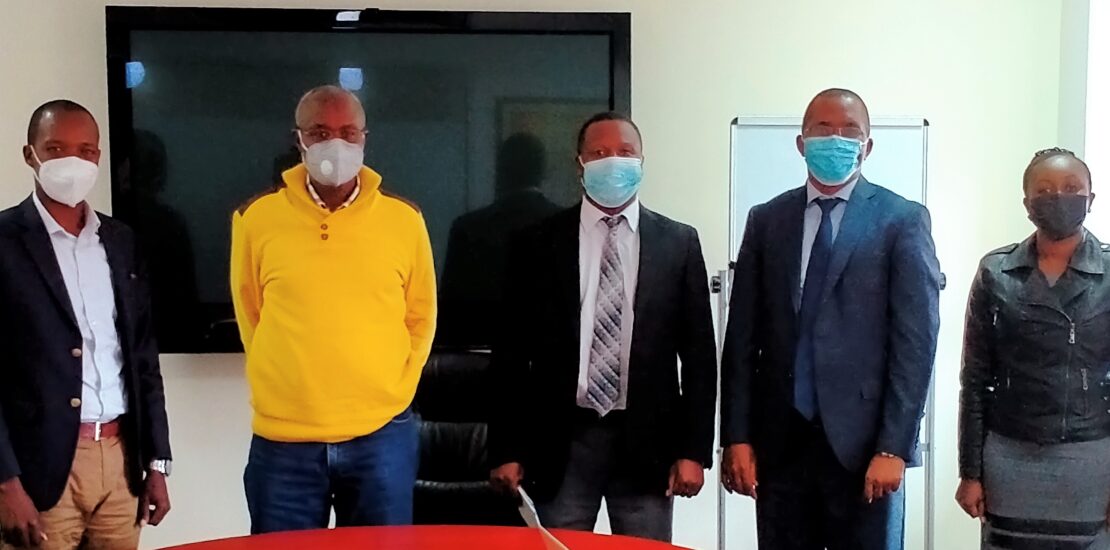 COLEACP’s NExT Kenya (New Export Trade) programme has held a consultation meeting with the Machakos County Government through the Department of Trade, Industrialization and Innovation (DoTII), to discuss the potential areas of support to the county through the programme. The meeting took place on 19 July at COLEACP’s Nairobi implementation office. Present at the meeting were: Dr Chagema Kedera, NExT Kenya Programme Coordinator; Bruce Chemjor, COLEACP Project Manager; Dr James Mutuku Mutunga, DoTII, Machakos County Government; Dr Muema Wambua, Director,… +
COLEACP’s NExT Kenya (New Export Trade) programme has held a consultation meeting with the Machakos County Government through the Department of Trade, Industrialization and Innovation (DoTII), to discuss the potential areas of support to the county through the programme. The meeting took place on 19 July at COLEACP’s Nairobi implementation office. Present at the meeting were: Dr Chagema Kedera, NExT Kenya Programme Coordinator; Bruce Chemjor, COLEACP Project Manager; Dr James Mutuku Mutunga, DoTII, Machakos County Government; Dr Muema Wambua, Director,… +Somalia: COLEACP training for Jubba Agro
- 22/07/2021
- Posted by: Sandra Borma
- Category: News, Somalia
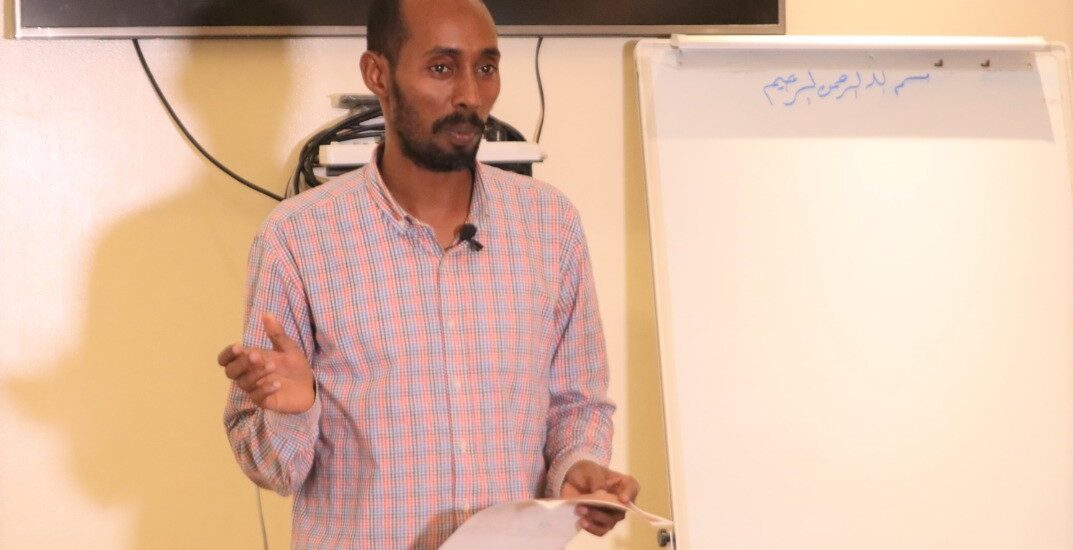 Technical staff of Jubba Agro (Somalia), undertook remote learning from a senior Ghanaian COLEACP expert, Mark Tutu Sarpong. The training focused on food security and good agricultural practices while also cascading training on good pedagogical dissemination practices using COLEACP field technical workshop methodology. The trainees were asked to produce engaging pedagogical content and deliver practical sessions to their peers. The field workshop methodology developed by COLEACP has been designed around specific subjects in order to help the target audience understand,… +
Technical staff of Jubba Agro (Somalia), undertook remote learning from a senior Ghanaian COLEACP expert, Mark Tutu Sarpong. The training focused on food security and good agricultural practices while also cascading training on good pedagogical dissemination practices using COLEACP field technical workshop methodology. The trainees were asked to produce engaging pedagogical content and deliver practical sessions to their peers. The field workshop methodology developed by COLEACP has been designed around specific subjects in order to help the target audience understand,… +Guinea: workshop to launch the development of the Good Practice Guide for the potato sector.
- 20/07/2021
- Posted by: Sandra Borma
- Category: Guinea, News
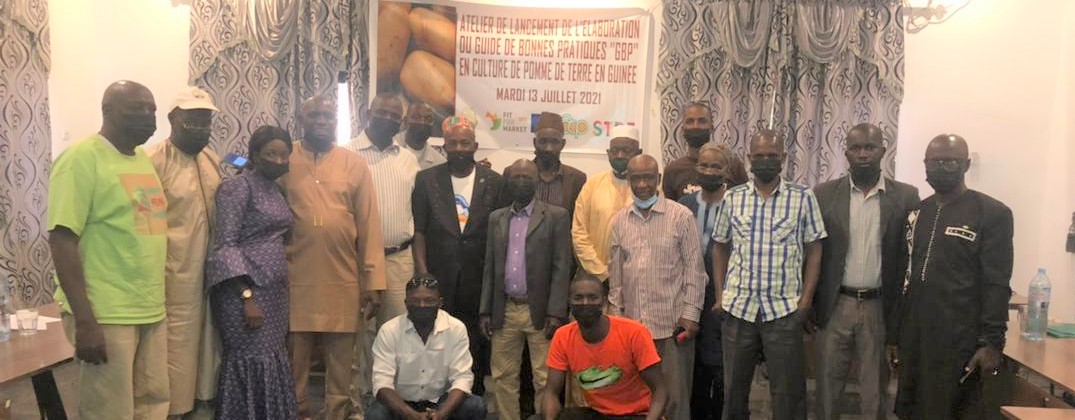 A national workshop consultation for stakeholders in the Guinean potato sector was held in Mamou on 13 July, as part of the development of the Good Practice Guide (GPG) for the value chain of this commodity. This workshop brought together more than 20 participants from the main farmers’ organisations in the sector (Fédération des Paysans du Fouta Djallon, FPFD; Union des Groupements Agricoles de Labé, UGAL; Union des Groupements Agricoles de Soumbalako, UGAS), the private sector, partner projects (the Belgian… +
A national workshop consultation for stakeholders in the Guinean potato sector was held in Mamou on 13 July, as part of the development of the Good Practice Guide (GPG) for the value chain of this commodity. This workshop brought together more than 20 participants from the main farmers’ organisations in the sector (Fédération des Paysans du Fouta Djallon, FPFD; Union des Groupements Agricoles de Labé, UGAL; Union des Groupements Agricoles de Soumbalako, UGAS), the private sector, partner projects (the Belgian… +Mali: Mango exporter ETS Yaffa & Frères benefits from a business loan
- 19/07/2021
- Posted by: Gaetan Dermien
- Category: Africa, Mali, Mangoes
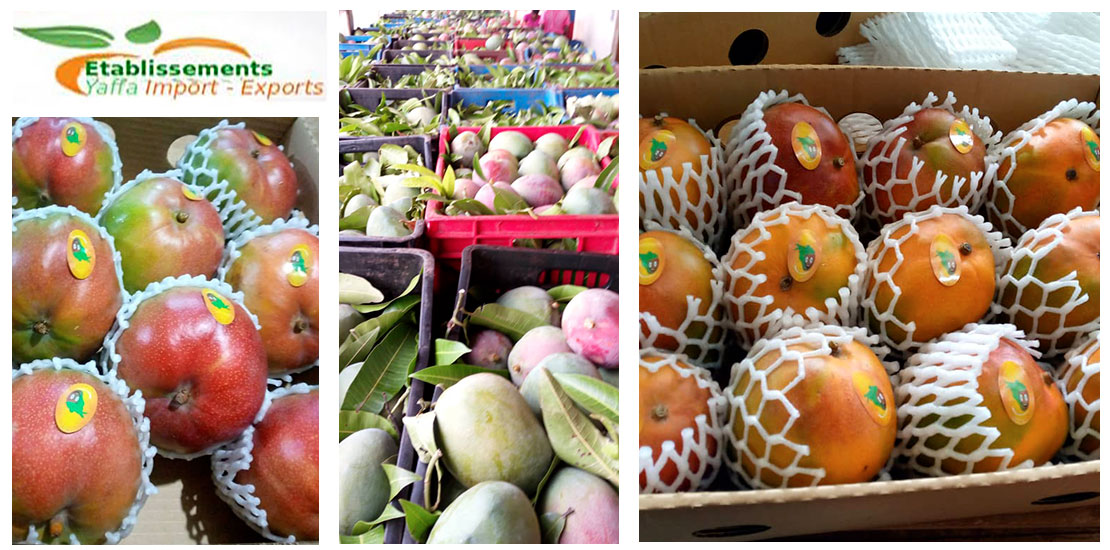 The ABC Fund (Agri-Business Capital) recently provided loans to three African agri-businesses to support their working capital needs and expansion, enabling higher rural employment and securing market access for farmers in their respective sectors (African Farming, 3 June). Image source : ETS Yaffa et Frères One of the successful companies is COLEACP member Etablissement Yaffa & Frères, one of the largest local fresh mango exporters in Mali. Yaffa has been a member of COLEACP since 2007, and over the past… +
The ABC Fund (Agri-Business Capital) recently provided loans to three African agri-businesses to support their working capital needs and expansion, enabling higher rural employment and securing market access for farmers in their respective sectors (African Farming, 3 June). Image source : ETS Yaffa et Frères One of the successful companies is COLEACP member Etablissement Yaffa & Frères, one of the largest local fresh mango exporters in Mali. Yaffa has been a member of COLEACP since 2007, and over the past… +
